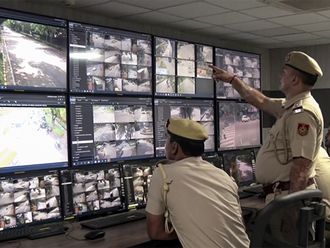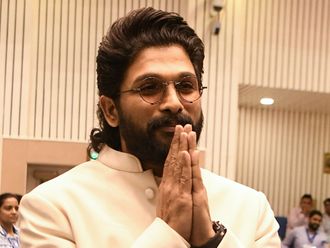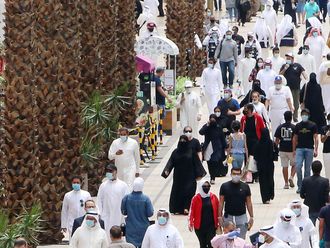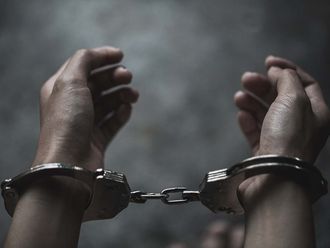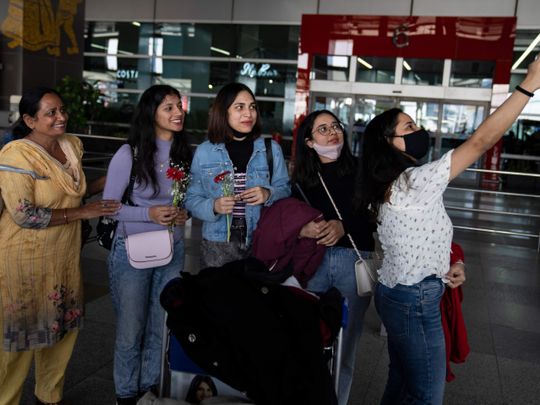
New Delhi: The Russia-Ukraine war is likely to push Indian medical students to explore the options in Bangladesh, Nepal, Spain, Germany, Kyrgyzstan and the UK because of the lower cost of medical course there.
Ukraine is a popular destination among MBBS aspirants partly due to the cost-effectiveness. Both Russia and Ukraine attract a substantial number of students from India for the MBBBS and BDS courses. But now all Indian students in Ukraine are forced to return home in the middle of their courses.
Petitioner Pravasi Legal Cell filed the PIL on behalf of 20,000 Ukraine returned Indian students for allowing them to join medical colleges in the country. The High Court agreed to hear the plea on March 21, the petitioner said.
The PIL filed through advocate M.P. Srivignesh highlighted the plight of the Indian medical students rescued from conflict-hit Ukraine that has the potential of disrupting the careers of several thousand young men and women who have already gone through the trauma of being in the war zone.
It is submitted that thousands of Indian medical aspirants prefer Ukraine for medical education due to various factors including affordability, quality of education, and the license to practice abroad.
In Ukraine, Indian medical students also have no compulsion to give any medical entrance exam if they clear NEET. All the above factors make Ukraine a comfortable option for Indians.
Indian students who study in Ukraine also have the advantage of getting to practice medicine in India. A medical degree earned from Ukraine is accepted by National Medical Commission on passing their Foreign Medical Graduates Examination (FMGE) exam.
According to the new rules of the FMGE, an MBBS aspirant can take up to 10 years to complete the programme apart from the minimum course work tenure of 4.5 years, candidates need to intern for two years — 12 months in the foreign medical institute where they are studying and another year of supervised internship in India, it stated.
As per the provisions of the National Medical Commission (Foreign Medical Graduate Licentiate) Regulations, 2021 the entire course, training, and internship or clerkship shall be done outside India in the same foreign medical institution throughout the course of study.
The provisions also state that no part of medical training and internship shall be done in India or in any country other than the one from where the primary medical qualification is obtained.
Further, it was submitted that at present there are no norms or regulations in India to accommodate medical students, who were studying abroad and had to return to India midway, in Indian medical colleges in between an academic session.
Pointing out to a circular dated March 4, allowing payment of stipend to those who qualify for the Foreign Medical Graduate Exam in India, the PIL said, however, the above circular is not of much use to students who have been rescued from Ukraine as many of them are in the second, third or fourth year of studies and have not completed their degree yet. To qualify for the stipend, one has to complete the degree, appear for the exam, qualify and then get the internship.
According to the National Medical Commission’s (NMC) regulations for Foreign Medicine Graduates (FMGs) issued in 2021, transfer from a foreign university to an Indian university in the middle of an MBBS programme is not permitted because the entrance guidelines and selection criteria differ.
10-year window
NMC’s regulations for Foreign Medicine Graduates provide a 10-year window for students to obtain their degrees, complete their internships (one year in Ukraine and India respectively) and apply for Foreign Medicine Graduates Examination to receive their licenses. Since an MBBS degree in Ukraine takes an average of six years to complete and taking into consideration the additional two years required for internships, it therefore leaves the candidates with only two years to apply for their licence in the 10-year window.
However, given the current crisis, there is no way of knowing when these students will be allowed to return to Ukraine to finish their studies. As a result, the 10-year window may pose a difficulty for them, as they will no longer be able to apply for a licence to practice medicine in India if they do not complete the courses within that time frame. With the situation between Russia and Ukraine escalating every day, a decision regarding relaxations for MBBS students can be expected.
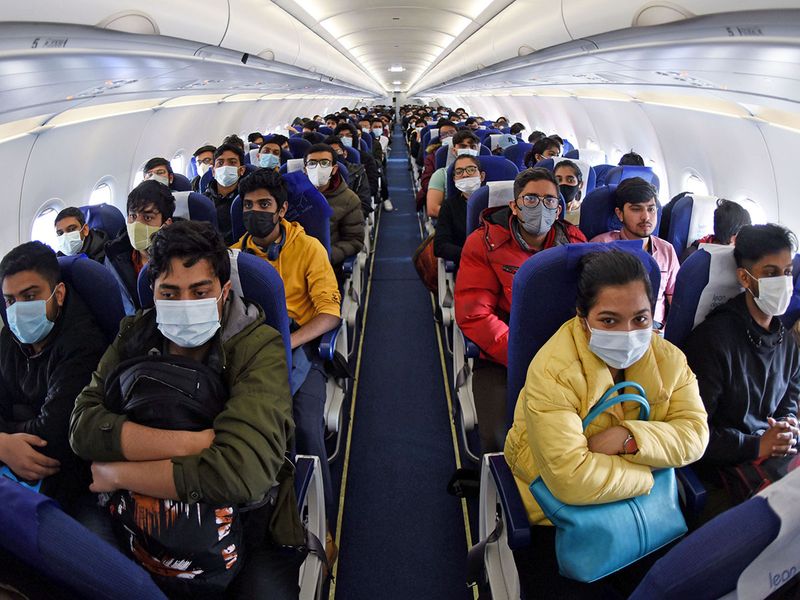
Pavan Choudhary, Chairman, Medical Technology of India, said: “The Russia-Ukraine conflict is likely to push Indian students to explore other options for MBBS abroad as these two countries attract a substantial number of students from India for the course. Countries like Bangladesh, Nepal, Spain, Germany, Kyrgyzstan and the UK, among others, may gain popularity because of the lower cost of the courses there”.
It is heartening to note that some states are stepping up to help the displaced students viz, the Consortium of Deemed-to-be Universities of Karnataka has offered to take one thousand medical students returning from Ukraine. Further Prime Minister Narendra Modi has also urged the private players to expand in the medical education sector.
Choudhary said: “This of course needs a systemic examination and serious policy reframing. If we can make the required alterations to our Medical education policy and facilitate the necessary ecosystem, then India can aspire to become an important hub for preparing doctors and healthcare workers.”
Internship programme
Sanjay Bhutani, Director, Medical Technology Association of India said: “The uncertainty a conflict brings is taking a toll on the returned Indian students who were studying medicine in Ukraine. But with The National Medical Commissions (NMC) easing the requirements for medical graduates on the 12 month necessary internship programme in their respective institutes by allowing them to continue their remaining internship in India by assigning additional 7.5 per cent seats in Indian medical colleges for Foreign Medical Graduates. We are hopeful that the fate of approximately 18,000 students will also be in their favour to ensure that there is no delay for these future healthcare providers to serve our already burdened healthcare system due to the existing pandemic and now the political unrest.”
Dr Rimy Dey, Committee head Post Graduate Studies, IMA-JDN (Indian Medical Association - Junior Doctors Network) said, “The Ukraine situation has garnered a state of dubiety upon the future of thousands of Indian students who were pursuing their medical courses from Ukraine. Such unprecedented situations demand unusual solution. Rehabilitation of these medical students should be given utmost priority. Absorption into the current Indian medical schooling system may not be possible in a trice, but some effective solution in the form of medical student exchange programme or off-campus or online classes to continue medical education should be sought. As a state of uncertainty looms over the careers of these students in different phases of their medical career, instead of burdening them further, the Government, competent medical authorities, NMC, IMA, Association of medical students and teachers should come together proactively to thwart the doubts and come up with a strong and effective solution.”
Dr Pravin Dhage, President, Association of Resident Doctors said, “it shouldn’t go in vain. The Indian Government must take into account the sufferings of these medical students and should also make provisions to admit them in medical colleges of India. They can be adjusted as a one time measure in the existing medical colleges of our country using appropriate distribution systems. And it is possible only by amending the current provisions in the National Medical Commission.



